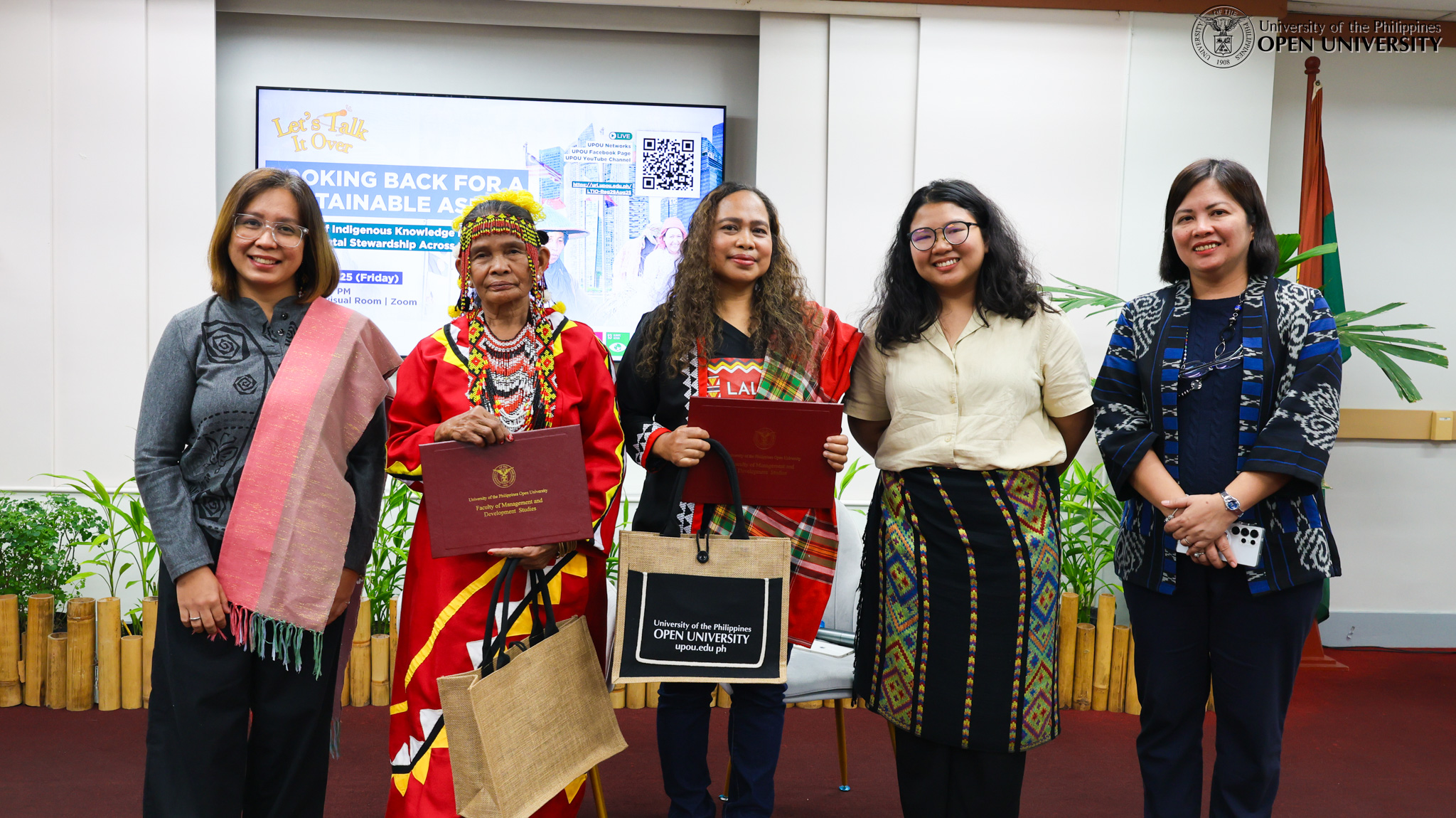
The University of the Philippines Open University (UPOU), through the Faculty of Management and Development Studies (FMDS), concluded its ASEAN Month celebration with a hybrid webinar titled “Let’s Talk it Over on Looking Back for a Sustainable ASEAN: The Role of Indigenous Knowledge in Environmental Stewardship Across the Region”, on 29 August 2025 at the UPOU Audiovisual Room and via Zoom.
The event aimed to highlight the indispensable contributions of indigenous knowledge systems to sustainable development in Southeast Asia, reaffirming the importance of people-centered approaches in regional integration. Indigenous communities, as stewards of ecological knowledge and custodians of cultural diversity, are vital in realising these goals.
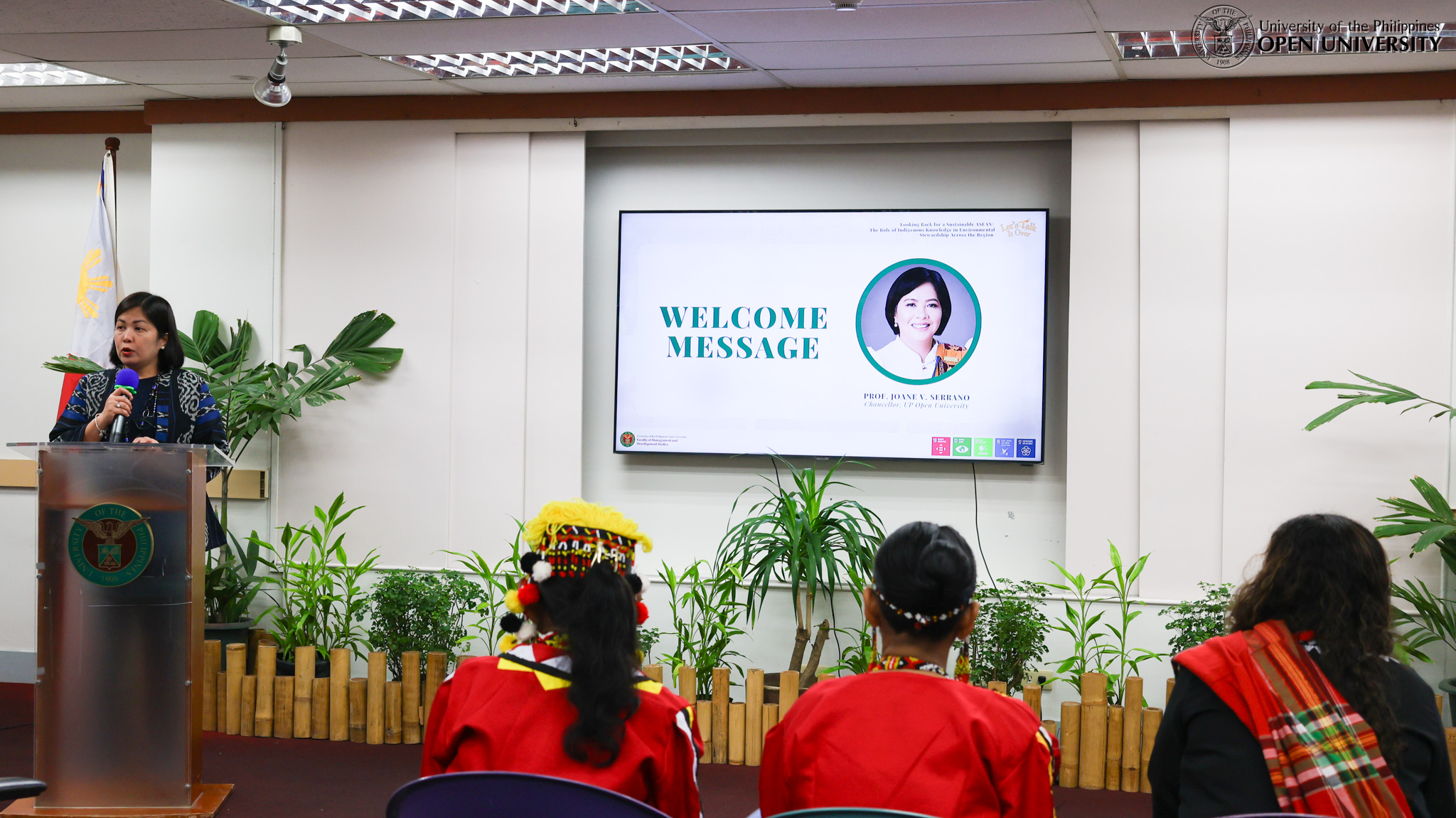
Professor Joane V. Serrano, Chancellor of the UP Open University, officially opened the program with a warm welcome message. She mentioned that through this event, we are recognizing the very important and indispensable contributions of indigenous knowledge systems to sustainable development in Southeast Asia. Chancellor Serrano also hoped that participants not only gain new knowledge from the discussions, but also a deeper appreciation of the role that indigenous peoples play in protecting our environment and shaping our collective future as a region.
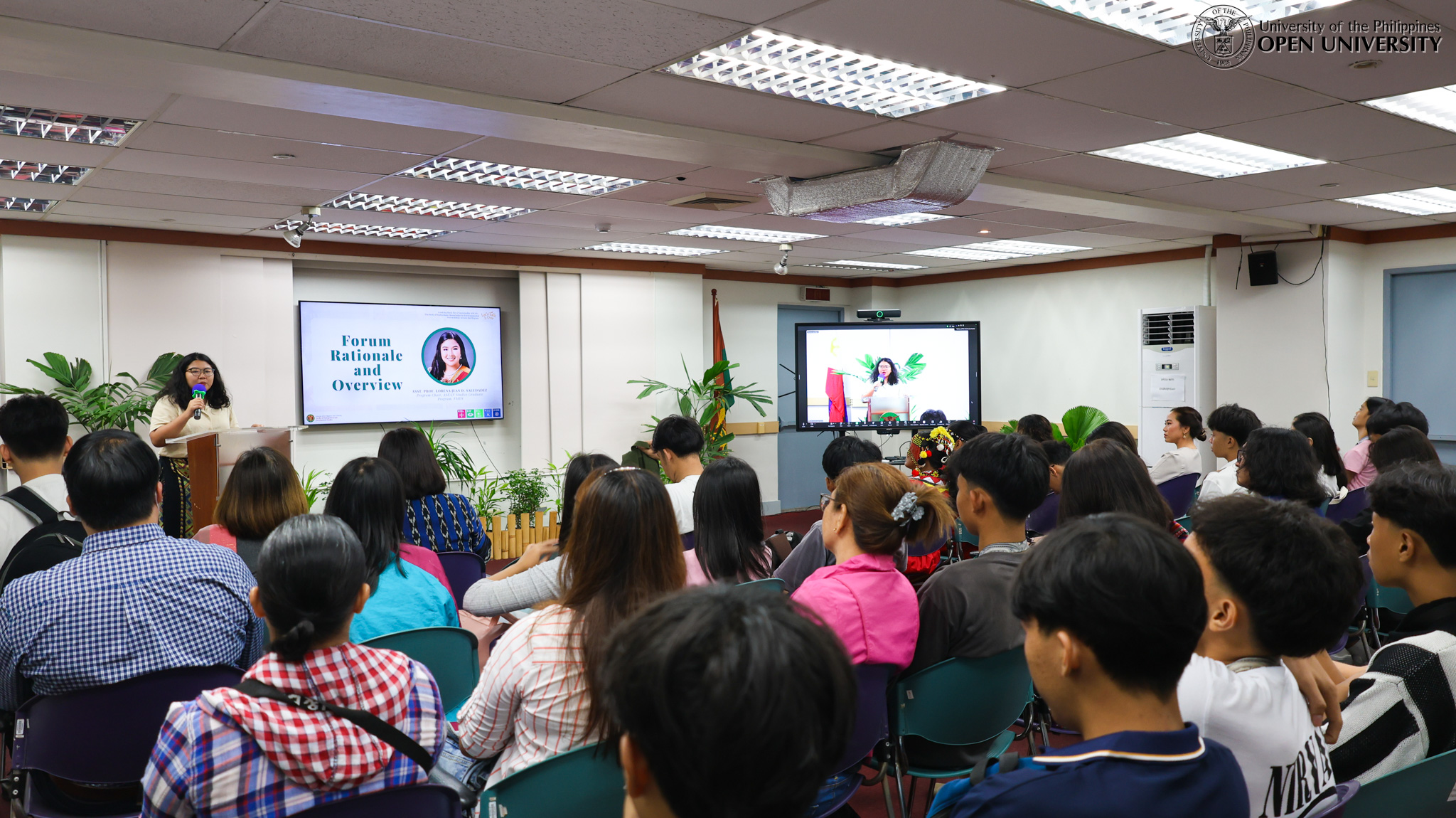
Assistant Professor Lorena Jean D. Saludadez, Program Chair of the Graduate Certificate in and Master of ASEAN Studies Programs under the FMDS, opened the forum with an overview and rationale, highlighting the theme of “Inclusivity and Sustainability” under Malaysia’s ASEAN chairmanship. She stressed the importance of recognizing grounded perspectives and lived realities, as well as the diverse identities within ASEAN, to truly pursue inclusivity and sustainability.
Asst. Prof. Saludadez further emphasized that this rootedness is crucial not only for rediscovering identity but also for defining the kind of progress ASEAN aims to achieve—progress that must be deeply rooted in society. The ASEAN Month celebration thus focuses on acknowledging indigenous roots and their vital contributions to ASEAN’s identity building. By strengthening awareness of indigenous cultures and traditions, the event fosters pride in national heritage while deepening a shared sense of belonging within the ASEAN community.
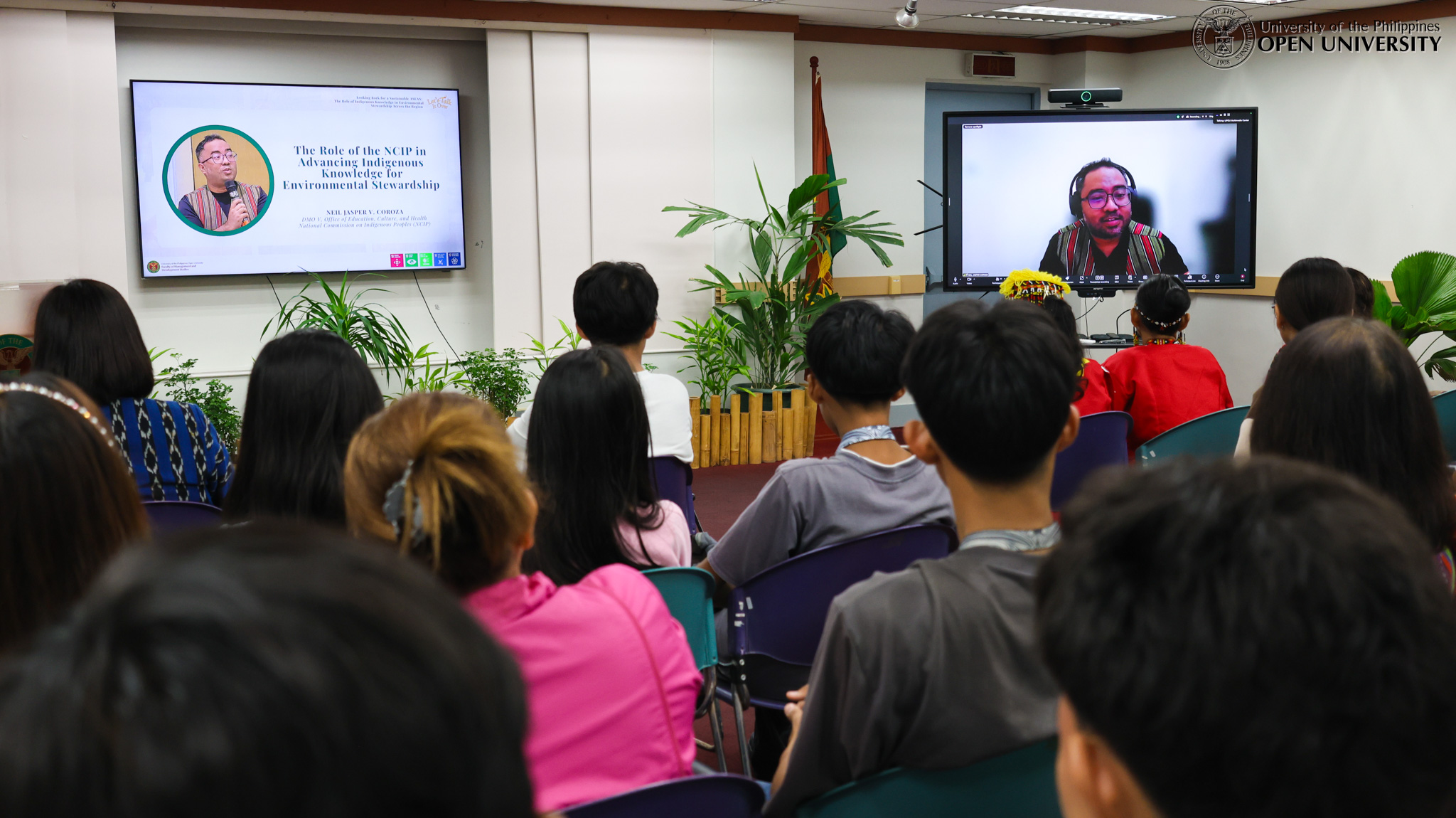
The discussion started with Mr. Neil Jasper Coroza, Chief of the Education and Culture Development Division of the National Commission on Indigenous Peoples (NCIP). He discussed the agency’s role in promoting indigenous knowledge in the context of environmental stewardship. Mr. Coroza also outlined key definitions related to Indigenous Peoples, Ancestral Domains, and Indigenous Knowledge Systems and Practices (IKSP), providing a foundational understanding of the concepts central to indigenous identity and governance.
He also elaborated on the legal and policy framework supporting indigenous rights, particularly Republic Act No. 8371 or the Indigenous Peoples’ Rights Act (IPRA). Mr. Coroza concluded his presentation by emphasizing that cultural sensitivity must precede inclusivity and sustainability in any meaningful engagement with indigenous communities.
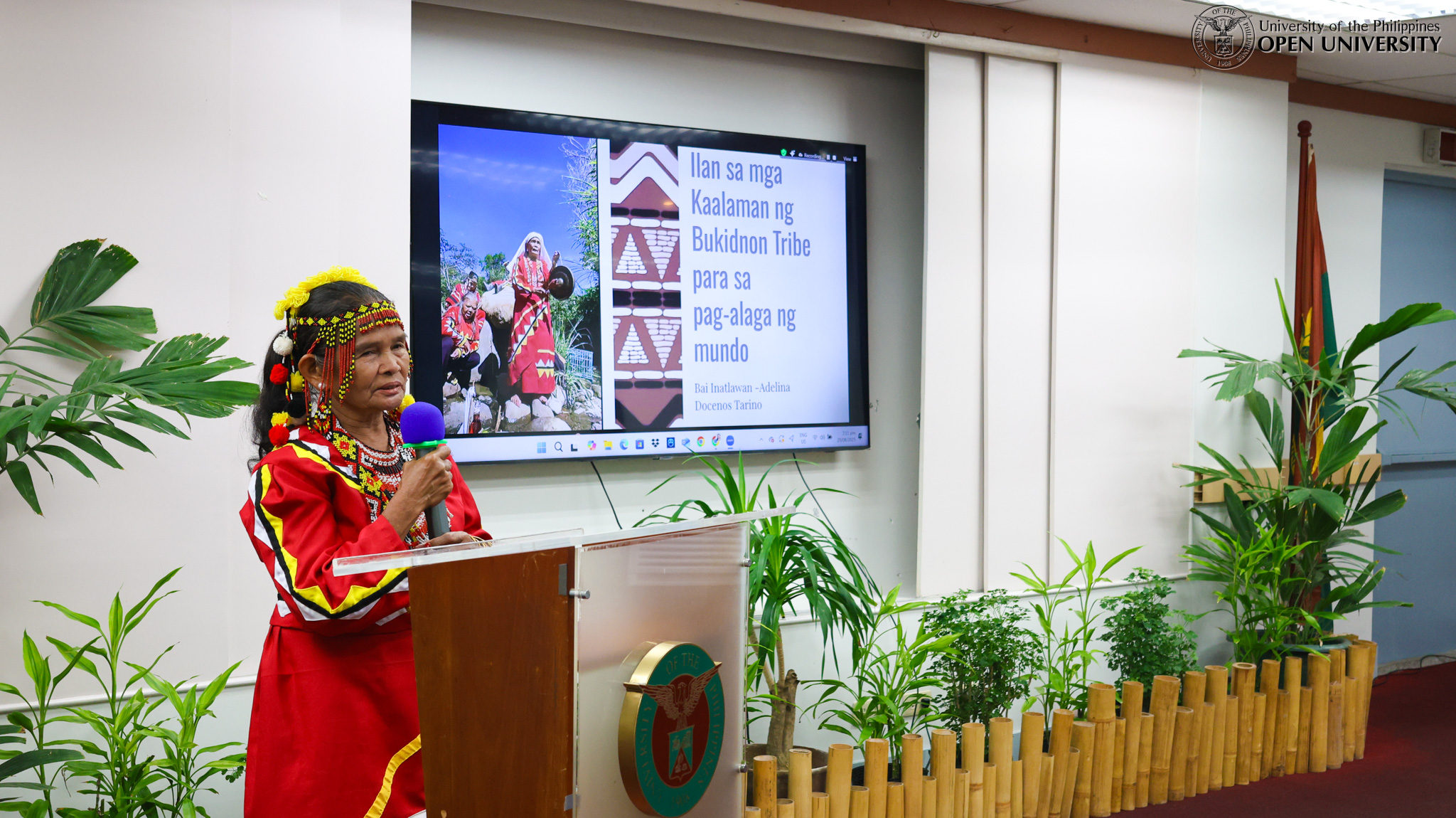
The forum continued with a presentation by Bai Inatlawan, also known by her given name Adelina Docenos Tarino, the spiritual leader, chieftain and head claimant of the Daraghuyan (Da-rag-huyan) Ancestral Domain in Bukidnon, Mindanao. Bai Inatlawan discussed the Indigenous Wisdom and its Role in Environmental Stewardship for a Sustainable Future in ASEAN. She explained that nature is alive and interconnected with humanity. She also added that rituals and prayers are performed to honor and seek guidance from the spirits of the wind, water, land, and other natural forces.
“The life of humans and nature are equal and must be cared for together,” Bai Inatlawan stressed.
According to her, neglecting nature and committing moral transgressions such as deforestation, theft, and disrespect for the spirits, bring sickness and disasters like storms, floods, and earthquakes. To prevent this, rituals of respect and offerings are made to maintain harmony with the environment.
Bai Inatlawan’s message highlighted that indigenous practices are not only cultural traditions but also essential guides for sustainable living and environmental protection.
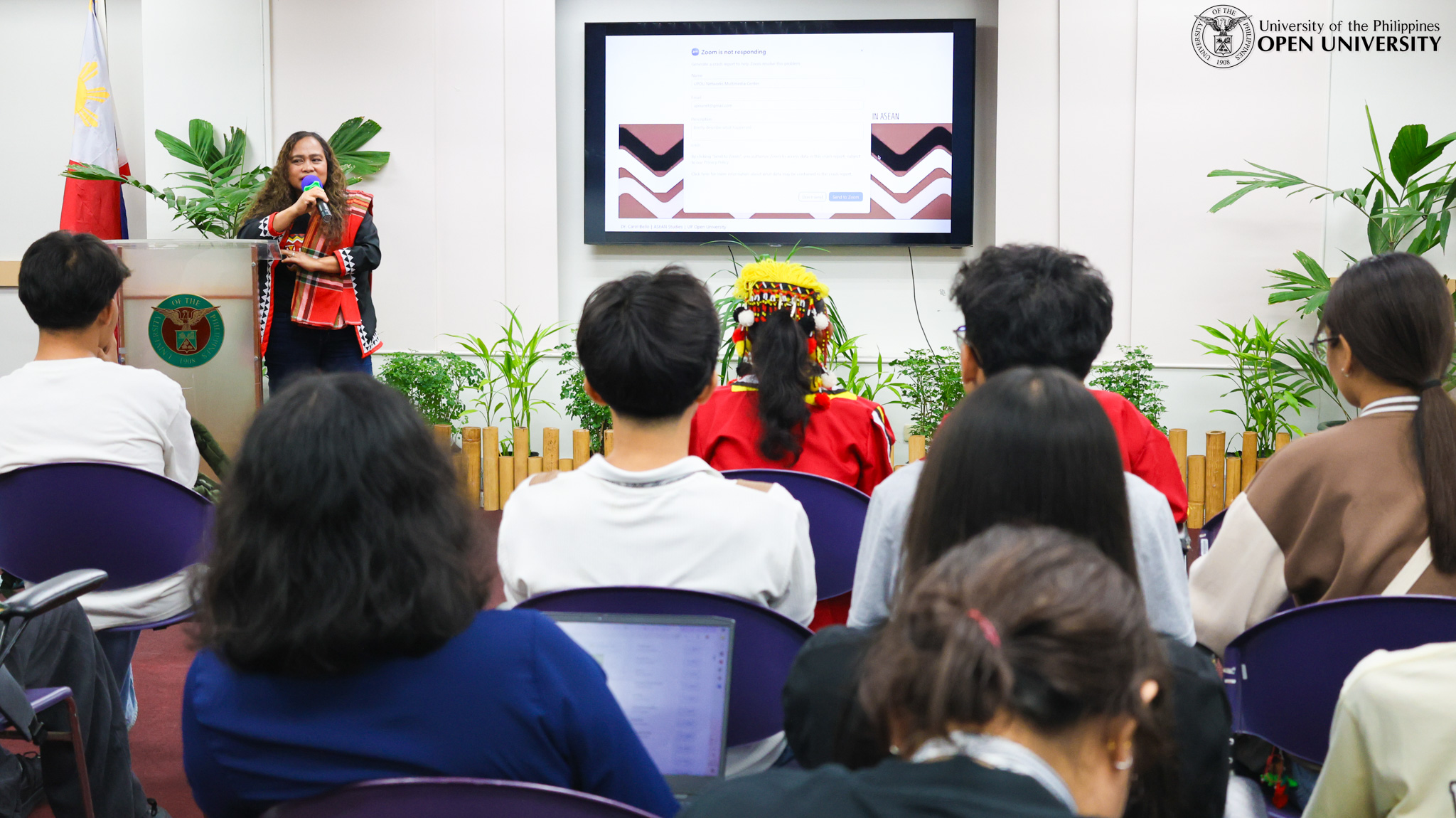
After the perspectives of the community and the national agency representative were presented, Dr. Maria Carolina R. Bello, a feminist cultural worker and senior lecturer at the FMDS, offered insights on the role of indigenous knowledge from an academic standpoint. She emphasized that within the academic setting, learning is a continuous and evolving process.
Dr. Bello also highlighted indigenous concepts such as customary law, rituals of thanksgiving, and prayers intended to guide and enlighten the soul. She also underscored the importance of recognizing diverse systems of knowledge, noting that ASEAN is recognizing different knowledge and acknowledging different realities.
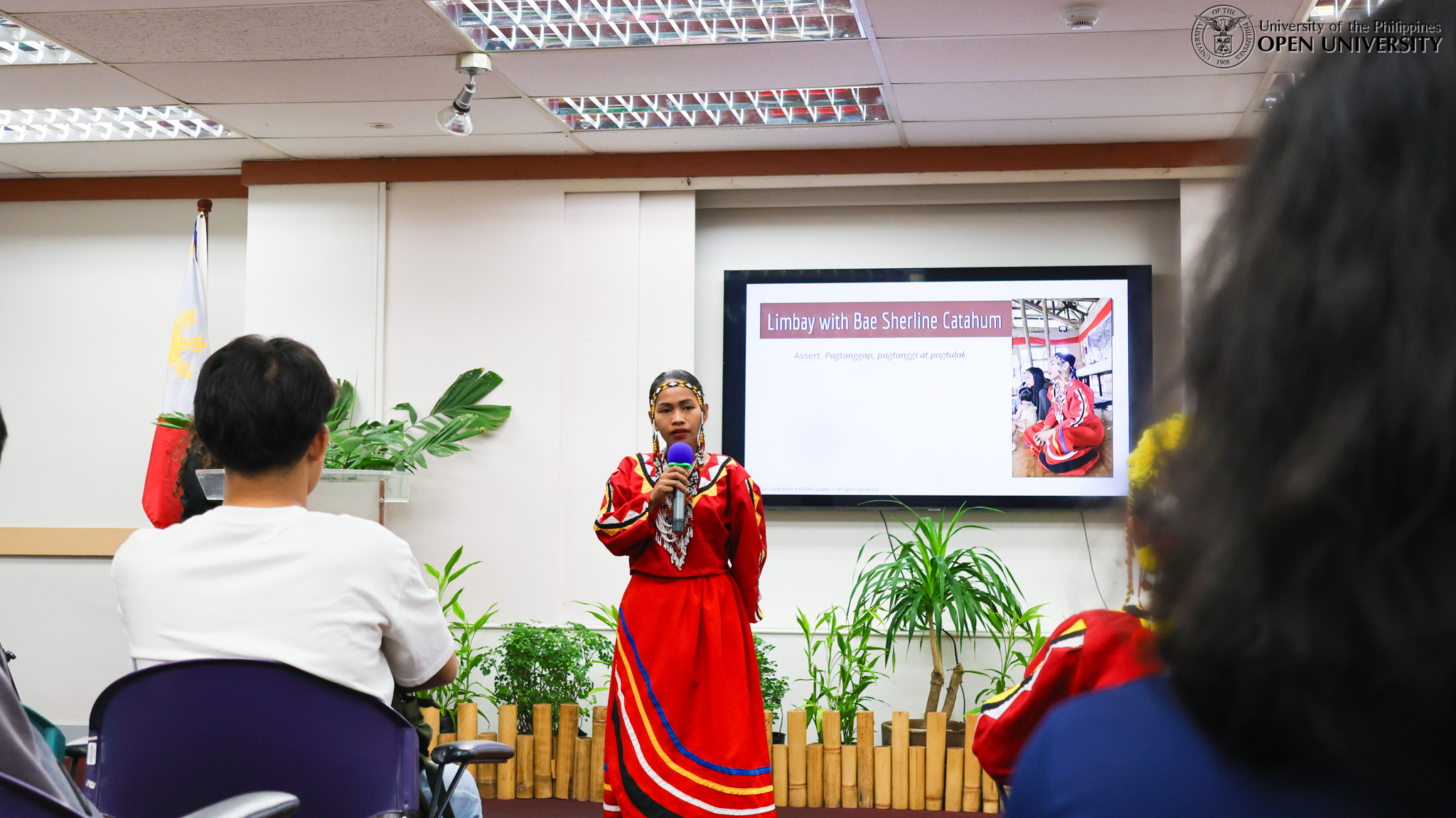
Following the presentations, Bai Sherline Catahum performed a Limbay, a traditional prayer rooted in the oral traditions of indigenous communities in Mindanao. The prayer, which seeks blessings for long life and protection from illness, served as a cultural and spiritual highlight, grounding the event in indigenous heritage and collective well-being.
An open forum was then held, giving participants the opportunity to ask questions, share insights, and actively participate in the dialogue. This was followed by the awarding of certificates to speakers, and a short synthesis that recapped the discussions and emphasized key points raised throughout the program.
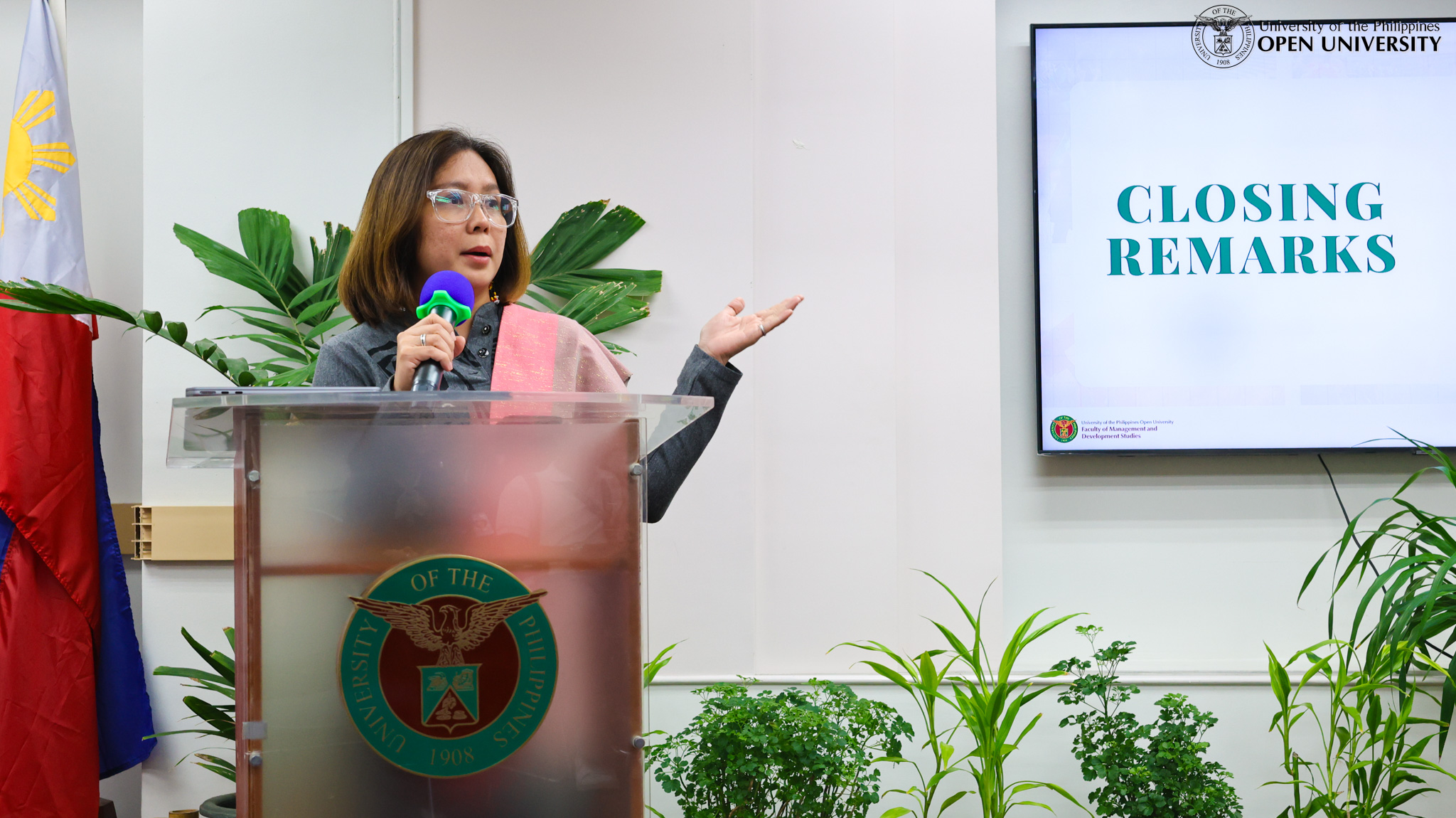
The program concluded with closing remarks delivered by the Program Chair of the Diploma in and Master of Social Work (D/MSW) Programs and Dean of the FMDS, Associate Professor Finaflor F. Taylan. In her message, Dean Taylan expressed appreciation to the speakers and participants for contributing to a productive and insightful session. She encouraged everyone to reflect on the significance of indigenous knowledge in building a resilient and prosperous future for our region.
Dean Taylan highlighted the significance of preserving and honoring cultural heritage. She urged everyone to embrace this commitment beyond the event, stating “Ipagpatuloy po natin ang pagkilala pa sa ating identidad at pag-celebrate dito araw-araw, hindi lang po ngayon.” (“Let us continue recognizing and celebrating our identity every day, not just today.”)
This episode of LTiO serves as a vital platform to surface indigenous perspectives, promote cross-sectoral learning, and reinforce the call for environmental and cultural justice across the region.
This event also supports the achievement of various Sustainable Development Goals (SDGs) including Reduced Inequalities (SDG 10), Climate Action (SDG 13), Life on Land (SDG 15), Peace, Justice, and Strong Institutions (SDG 16), and Partnerships for the Goals (SDG 17).
Written by Vanessa T. Autor • Edited by Larry N. Cruz








